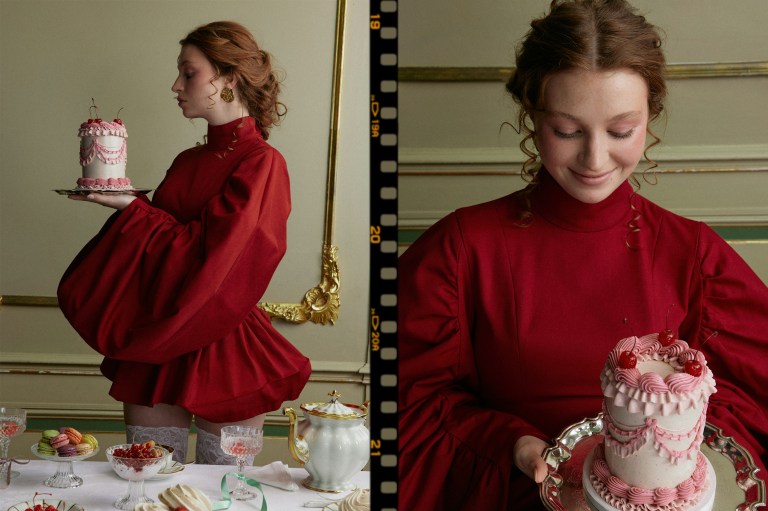
Why You Struggle In Relationships, Based On Your Myers-Briggs Type
ESTJ
No one can stand up to you. ESTJs a force of nature and they want a partner who can handle that (and sometimes tell them no). It’s not that they feel that they have impossibly high standards; it’s just that most romantic partners are intimidated by their no-holds-barred approach to life and relationships.
INFP
You feel trapped too easily. INFPs love their freedom; to them it defines who they are, so the thought of “date night” makes them want to scream. You do you; eventually someone will come along who makes you feel enthusiastic and not at all claustrophobic.
ESTP
You like relationships, but only on your terms. Usually those terms turn ESTPs relationships into a terrifying rollercoaster for most potential partners. A lot of the time they can get stuck in a rut, despite their love of risk-taking. For those ESTPs frustrated by their romantic options perhaps they should try applying their “living on the edge” philosophy to their search for potential partners.
INTJ
You rely too much on people “coming to you”. INTJ’s are naturally a bit shy, and when this is combined with their difficulty reading people’s motivations you can get into a tricky relationship with the wrong person very easily. Forcing yourself to pursue potential partners instead of hoping they’ll just gravitate to you is the best way to break this habit.
ISTJ
You don’t like change. ISTJs often have a hard time getting over previous partners, and this can make them seek out that person long after they’re gone. This can lead to the ISTJ searching for someone similar to their last partner instead of someone who might be different, but will make them happy.
ENFJ
You “pick out” people to date. The opposite of the INTJ’s problem, the ENFJ often uses their charisma and charms to influence someone into liking them. Once they have converted this person to their side, they will become fiercely loyal, even if the person isn’t worthy of their loyalty.
ISTP
You take forever to get into relationships. A fear of commitment common among ISTPs often keeps them on the fence about relationships for ages while they keep the other person in limbo. This can cause some types to become disillusioned with the relationship, while others may appreciate the space. Still, ISTPs benefit greatly if they work on learning to make emotional decisions more efficiently.
INTP
You “didn’t know what you had ‘til it was gone”. INTPs are often lost in their own minds, and don’t realize what their significant other added to their life until that person gave up trying to reach them. Often INTP’s must focus on learning to pay attention to the other person, even when they would rather be lost in their own mind.
INFJ
You chase perfection. INFJs are often perfectionists, and this extends to their relationships. Unfortunately, this can get in the way of focusing on true happiness in relationships, leaving the INFJ attempting to find a problem to fix where there is none. Persistent INFJs will repeat this behavior until they create a problem to solve.
ESFJ
You rely too much on a partner. While it’s true that your partner should make you happy, ESFJs often make their partner their sole supplier of happiness. This falls apart once the other person inevitably can’t (or won’t) do that anymore, leaving the ESFJ without an emotional connection. For unhealthy ESFJs without a strong support network, this leads to seeking out another relationship immediately regardless of true interest in the other person.
ISFP
Your emotions get the best of you. ISFPs are often painted as emotional artists, and while it’s a bit of a characterization, there are some elements that ring true. Mainly that ISFPs often struggle with feeling appreciated and loved, and can often boomerang between wanting love from their partner, and worrying that they are bothering their partner with their wants.
ENTJ
You are too sensitive. While many people may not see past the ENTJ’s tough exterior, underneath they often care too much about hurting other people’s feelings. This can lead them to not engaging with potential partners at all, because it makes them fear for the possible breakup.
ENFP
You idealize relationships. When ENFPs feel lost, they often turn to this unachievable ideal of the perfect relationship. This means that none of their real-life relationships can ever truly match up to this ideal, leaving them oftentimes disappointed.
ISFJ
You fall into love too quickly. While some types (like the ISTP) might take years to recognize that they are in love, the ISFJ may take little more than a few hours. This leaves them much more invested in the relationship right off the bat, potentially alienating their prospective romantic interest.
ESFP
You get bored easily. ESFPs know how to bring the party, but this can lead to disappointment in types with less energy. Oftentimes this leads to the ESFP jumping from partner to partner looking for that “spark”.
ENTP
You don’t express your appreciation. ENTPs often feel that their partner should intuitively know that the ENTP appreciates them, not recognizing that this is not typically the case. Ironically, ENTPs are one of the personality types that loves appreciation the most, leading to a “one way street” in many of their relationships.











